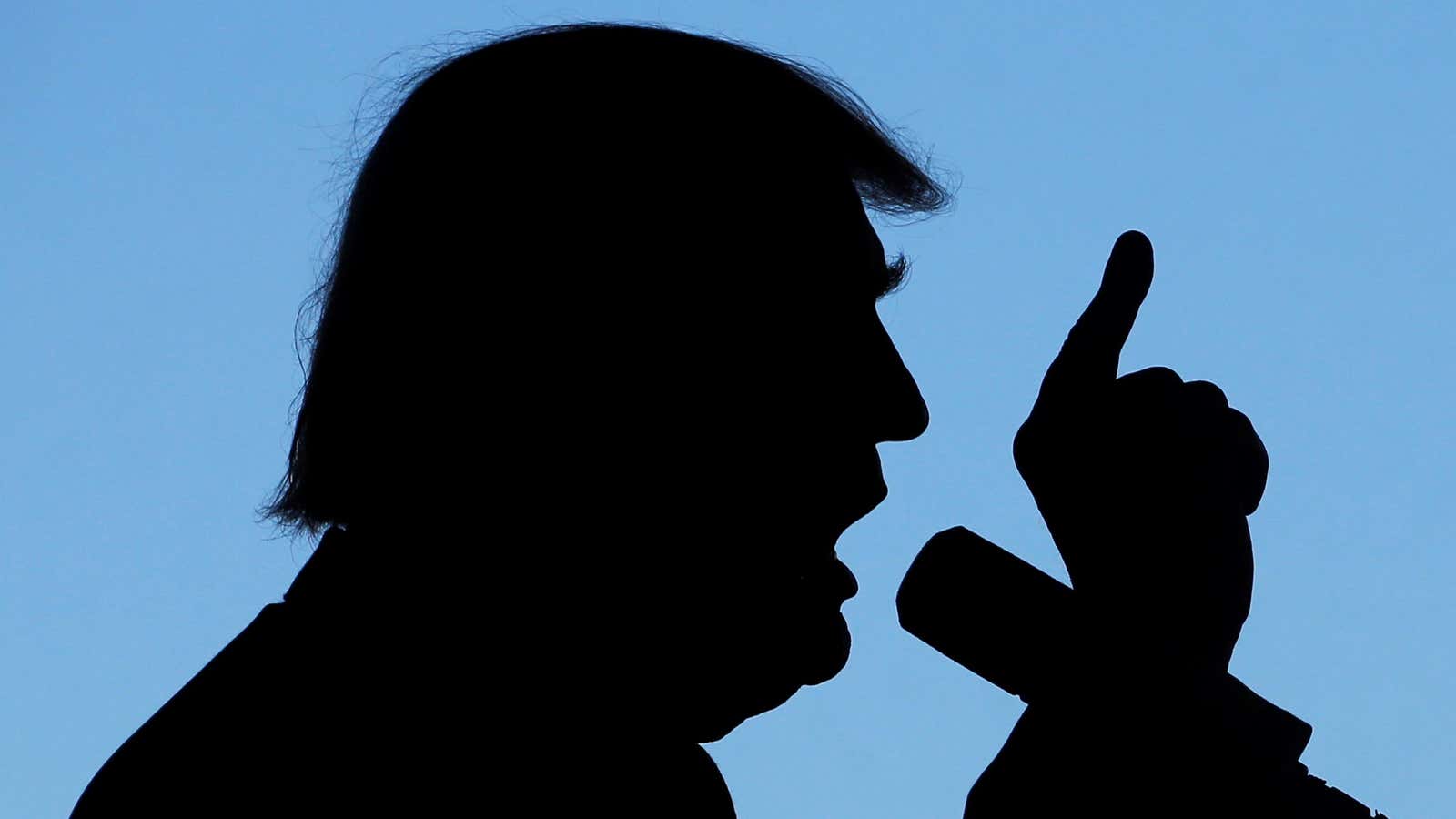Voters who made up solid portions of Donald Trump’s 2016 base may be souring on his presidency.
Yes, his overall approval ratings have remained relatively steady at around 40% throughout his 26 months in office, amid the onslaught of his flouting presidential norms and a slew of investigations into him, his campaign and his administration. Even the revelations that he paid off an adult-film star to not to disclose their alleged affair has had little effect on polls, it seemed.
Now, though, key supporters are expressing misgivings as they sour on displays of his abrasive, abusive personality. In recent days, Trump has attacked the late Republican war hero John McCain, his own aide’s staunchly conservative, influential husband George Conway, and an autoworker union boss in Ohio.
Trump’s unrelenting attacks on McCain, the Arizona senator and 2008 Republican presidential nominee who died in last August, have come under particular scrutiny. Trump has mocked McCain for being “last in his class” at Annapolis (he was not) and told reporters he “was never a fan of John McCain and I never will be.”
Speaking at a tank plant in Lima, Ohio, Trump complained March 20 that he hadn’t gotten credit for McCain’s funeral.
Johnny Isakson, a Georgia Republican senator who has voted with Trump positions more than 92% of the time, is among those speaking out.
“The country deserves better, the McCain family deserves better,” Isakson told the Bulwark. “I don’t care if he’s president of United States, owns all the real estate in New York, or is building the greatest immigration system in the world. Nothing is more important than the integrity of the country and those who fought and risked their lives for all of us.”
Isakson told Georgia public radio on March 20 that Trump’s comments were “deplorable,” and a “damaging situation.”
For a man who, on the campaign trail, mocked a disabled reporter and the family of a US soldier slain in Iraq, it could be seen as just another week in the Oval Office.
But there are signs that some voters in key blocs are expressing misgivings. Here are a few examples:
Swing voters in Wisconsin
Voters in Wisconsin who supported Barack Obama in 2012 and then Trump in 2016 told a recent focus group that they were unlikely to pull the lever again for him, despite their belief he was doing what he’d promised as president, because of his personality.
- “He’s getting stuff done, but he lies. I don’t think he’s a very good person, but he’s getting stuff done, so it’s hard,” said Amanda, a 39-year old woman.
- “There’s more negativity, more solid evidence of a negative personality.” said Adam K., whose age was not mentioned in the report from Axios.
- “I think he’s a dirty crook that lies, cheats, and steals when he can,” said George Engelmann, 49. “There’s just a plethora of things that are still coming out.”
White evangelical Protestants
Support among white evangelical Protestants, by some measures Trump’s most stalwart base, has dropped nine points since he was elected, according to a Pew poll released March 18.
His declaration of a “national emergency” to claw funding from the Pentagon for a wall on the southern border of the US—a move many conservatives say was a short-sighted blunder—may have affected his popularity with white evangelicals. More than one in five say they think the declaration was an abuse of power and don’t believe there is an emergency on the national border, according to a Marist Poll released Feb. 19.
Trump’s vocal support of a “two-state” solution for the Israeli-Palestinian conflict, which would ensure a permanent homeland for Palestinians, also worries evangelicals, Anthony Harper, publisher of the IntermountainChristian News, told Quartz this week. An Old Testament prophecy warns against dividing Israel, and the administration’s approach risks “angering his voter base,” he said. (Secretary of State Mike Pompeo is in Israel now, meeting with prime minister Benjamin Netanyahu, offering a sign of the administration’s support for his re-election bid.)
Calling his aide Kellyanne Conway’s husband George a “stone-cold loser and husband from hell,” as Trump did this morning on Twitter, is unlikely to endear Trump further to a group that supports traditional “family values.”
White Catholics
Support for Trump among white Catholics has dropped from 52% to 44% since November 2016, Pew shows. Catholic voters were equally split between Trump and 2016 opponent Hillary Clinton, Crux Now, a Catholic news service, notes.
Former House speaker Paul Ryan, a Wisconsin Republican and practicing Catholic, warned Republicans during a March 11 lecture that there were some Democrats who could beat Trump in 2020. “The person who defines that race is going to win the race,” Ryan said. “If this is about Donald Trump and his personality, he isn’t going to win it.”
Ryan later walked back his comments with a “to be clear” tweet, saying Trump would win in 2020 “because of his accomplishments” as long as the election is about ideas, and not the “personality contest” he alleged Democrats and the media want.
